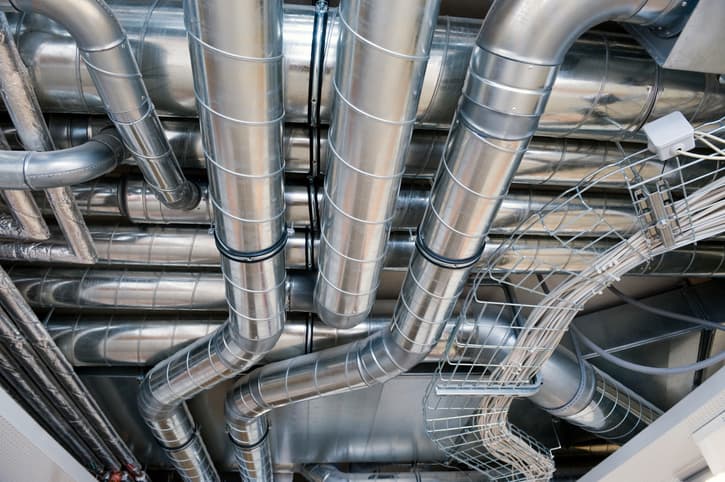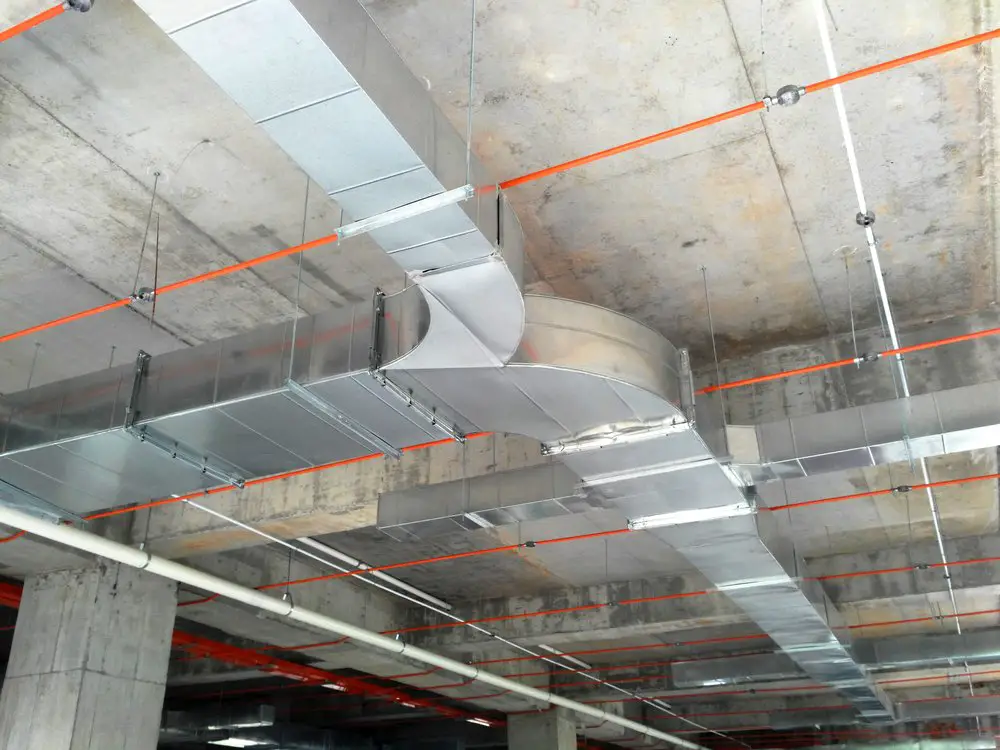HVAC ductwork plays a crucial role in your home. It helps in heating and cooling your rooms. This article will guide you through the basics of HVAC ductwork. Let’s dive in!

Credit: gentryac.com
What is HVAC Ductwork?
HVAC stands for Heating, Ventilation, and Air Conditioning. Ductwork is the system of ducts used to transport air. These ducts carry warm or cool air to different parts of your home.
Why Is Hvac Ductwork Important?
Good ductwork ensures even distribution of air. This keeps your home comfortable. It also helps in saving energy. Proper ductwork can lower your energy bills.

Credit: www.austingsmechanical.com
Types of HVAC Ductwork
There are several types of HVAC ductwork. Each type has its own benefits. Here are the most common types:
1. Sheet Metal Ducts
These are made from galvanized steel or aluminum. They are very durable. They are also less likely to grow mold.
2. Flexible Ducts
Flexible ducts are made from a plastic tube. The tube is surrounded by a wire coil. They are easy to install. However, they can be easily damaged.
3. Fiberglass Lined Ducts
These ducts have a fiberglass lining. The lining helps in soundproofing. It also provides insulation. But, it can harbor mold if not maintained.
4. Fiberboard Ducts
These are made from compressed resin and fiberglass fibers. They are cheap and provide good insulation. However, they can be prone to mold growth.
How to Maintain Your HVAC Ductwork
Maintaining your ductwork is important. It ensures the system works efficiently. Here are some tips to keep your ducts in good shape:
1. Regular Cleaning
Dust and debris can accumulate in the ducts. This can block airflow. Clean your ducts regularly. You can hire a professional for this.
2. Check For Leaks
Leaky ducts can waste energy. Inspect your ducts for any leaks. Use duct tape to seal small leaks. For large leaks, call a professional.
3. Insulate Your Ducts
Insulation helps in maintaining the temperature of the air. Insulate your ducts, especially those in unconditioned spaces.
4. Replace Old Ducts
Old ducts can be inefficient. Replace them if they are more than 15 years old. Newer ducts are more energy-efficient.
Benefits of Good HVAC Ductwork
Good ductwork offers many benefits. Here are some of them:
| Benefit | Description |
|---|---|
| Comfort | Even air distribution keeps your home comfortable. |
| Energy Efficiency | Reduces energy bills by minimizing air leaks. |
| Air Quality | Prevents mold and dust buildup. |
| Longevity | Extends the life of your HVAC system. |
Common Problems with HVAC Ductwork
Sometimes, problems can occur with your ductwork. Here are some common issues:
1. Leaky Ducts
Leaky ducts can waste a lot of energy. They can also reduce the efficiency of your HVAC system.
2. Blocked Ducts
Dust and debris can block airflow. This makes your HVAC system work harder.
3. Poor Insulation
Poorly insulated ducts can lead to energy loss. This can make your home less comfortable.
4. Mold Growth
Mold can grow in damp ducts. This can affect air quality and health.
How to Choose the Right HVAC Ductwork
Choosing the right ductwork is important. Here are some factors to consider:
1. Material
Choose a material that suits your needs. Metal ducts are durable. Flexible ducts are easy to install.
2. Size
The size of the ducts should match your HVAC system. Too small ducts can restrict airflow. Too large ducts can be inefficient.
3. Insulation
Good insulation helps in energy efficiency. Choose ducts with proper insulation.
4. Cost
Consider your budget. Some materials are more expensive but last longer.
Frequently Asked Questions
What Is Hvac Ductwork?
HVAC ductwork refers to the system of ducts used for air distribution in heating, ventilation, and air conditioning systems.
How Does Ductwork Impact Hvac Efficiency?
Proper ductwork ensures efficient airflow, reducing energy consumption and improving overall HVAC system performance.
Why Is Ductwork Insulation Important?
Ductwork insulation helps maintain temperature, reducing energy loss and improving system efficiency and comfort.
How To Identify Ductwork Leaks?
Look for uneven temperatures, increased energy bills, or audible air leaks to identify potential ductwork leaks.
Conclusion
HVAC ductwork is essential for a comfortable home. Proper maintenance can save you money. Choose the right type of ductwork for your needs. Keep your ducts clean and well-insulated. This will ensure your HVAC system runs efficiently.
FAQs
Here are some common questions about HVAC ductwork:
1. How Often Should I Clean My Ducts?
Clean your ducts every 3-5 years. If you have pets or allergies, clean them more often.
2. Can I Clean My Ducts Myself?
It is best to hire a professional. They have the right tools and experience.
3. How Do I Know If My Ducts Are Leaking?
Look for uneven heating or cooling. High energy bills can also be a sign.
4. What Is The Best Material For Ducts?
Metal ducts are durable and mold-resistant. Flexible ducts are easy to install but can be damaged easily.
Thank you for reading our guide on HVAC ductwork. We hope you found it helpful. Keep your home comfortable and energy-efficient with good ductwork.

